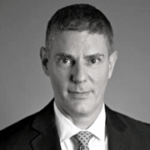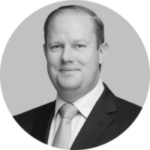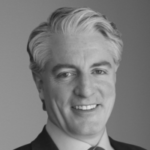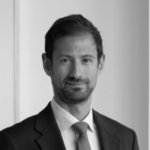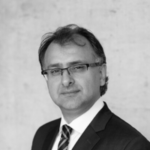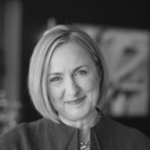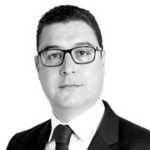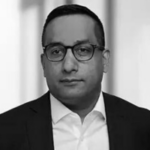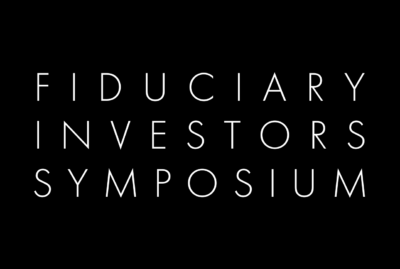Registration and light lunch
The “Canadian model” has long been a pin up for pension organisations and has been a benchmark for peers around the world looking to emulate their success. This session looks at the evolution of the model and the conditions necessary for its success and looks at the personal stories of some of its pioneers.
This session explores and debates the tenets of the successful Canadian model including governance and delegated investment authority; large allocations to illiquid assets; insourcing investment management; the use of leverage and cash. It looks to the future of the model and what is fit for purpose.
INCLUDES ROUNDTABLE DISCUSSION
Afternoon tea
What does it really mean to implement a net zero strategy? As more investors make pledges for net zero they are tasked with setting a strategy to achieve these goals. This session looks at the challenges of implementation including embracing emerging markets, fixed income and transition assets.
INCLUDES ROUNDTABLE DISCUSSION
This session will explore how traditional asset class budgets might not be the right structure for making the most of the opportunities presented by the net zero challenge. It will explore the need for flexibility, the role of private assets and the need to look between the cracks for investment opportunities.
INCLUDES ROUNDTABLE DISCUSSION
This session will look at the evolution of OMERS’ investment model, moving from separate operating entities to a unified portfolio view.
Welcome reception | Rooftop, Park Hyatt
Registration & arrival tea/coffee
After decades of persistent disinflation, steadily falling interest rates and (more recently) abundant liquidity that were tailwinds to traditional portfolios, we’re entering a new era of increased uncertainty that looks very different from the recent past. In this new era, inflation is no longer a non-factor, interest rates are back in play, and policymakers, facing real trade-offs, will likely be slower to ease, providing less of a tailwind for traditional portfolios. Investors also face new risks including public sector indebtedness, geopolitical tensions, climate change and AI. The dynamics of this new era put a premium on building portfolios that are resilient to the uncertainty ahead – portfolios with more predictable performance, and less susceptibility to tail-risk scenarios and sustained periods of underperformance. In this new era, how should investors think about evaluating their portfolio and their options when it comes to improving resiliency?
INCLUDES ROUNDTABLE DISCUSSION
Morning tea
A standard assumption underlying portfolio construction is the negative correlation of bonds and equities. However, for the past two years the correlation of bonds and equities has been positive. What are the drivers behind this? Will the correlation become negative again? What is the role of fixed income in portfolio construction in a world where this correlation remains positive?
INCLUDES ROUNDTABLE DISCUSSION
The immediate post-covid era of higher rates and inflation coupled with bank balance sheet tightening, has been a boon to private credit markets. As central banks reconsider their hawkish stance, has the music stopped or are there strategy niches that still offer investors diversification, resilience and attractive risk-return propositions? In this session we will explore some of the cracks and opportunities emerging in the private credit markets.
Lunch
Artificial Intelligence, at its core a prediction technology, has the power to disrupt industries and companies with opportunities and threats in equal measure. This session examines the disruptive economics of AI and how investors can identify the winners and losers.
There is a lot of hype around AI and its potential to revolutionise businesses, but how can asset owners invest in AI? This session looks at how the various waves of AI will flow through businesses, who is benefiting and over what time frame.
AI may be the greatest challenge and opportunity facing the current generation of institutional asset owners. This session takes a deep dive into the world of machine learning and how and why asset owners are embracing AI in their assessment of investments and their own internal efficiencies.
Afternoon tea
This session examines the success drivers of long-term investing and the toolkit available to investors to ensure their decisions, people, and stakeholders are aligned with the long term.
In today’s increasingly complex world, investors are taking on more and more risk to achieve the same returns in a system prioritizing shorter time horizons. This session will explore the misalignment in the industry and how actors at each level of the investment chain must play a bigger game to regain investor trust and realign toward long-term value creation.
Transport to conference dinner, pick up Park Hyatt
Conference dinner | Art Gallery of Ontario, Galleria Italia
Registration & arrival tea/coffee
This session examines the evolution and revolution of risk management including the use and impact of machine learning.
This session examines the evolution and revolution in portfolio management including how leading investors are adapting the toolkit at the “top of the house” – including active risk budgets, leverage and exposure management - to build resilience and diversification.
INCLUDES ROUNDTABLE DISCUSSION
Morning tea
This session will investigate the pressing challenges and emerging perspectives that shape asset allocation strategies in the current financial environment. The session will analyze innovations in asset allocation including the interplay between public and private investments, with a focus on integrating theory with practical applications. The discussion will question what it truly means to invest for the long term, considering the complexities inherent in today's diverse portfolios and investment operations.
A total portfolio approach overcomes the governance, benchmark and inertia drags inherent in strategic asset allocation, and can add returns of 50-100 basis points above strategic asset allocation according to its supporters. This session will look at the evolution in total portfolio management and the benefits and difficulties for funds.
CEM Benchmarking has been measuring the governance, cost and performance of more than 300 pension funds globally for more than 30 years. This session explores the observations of best practice from that data set and invites panellists to discuss the implications for investment team structure, investment access and partnerships, decision making and cost.










